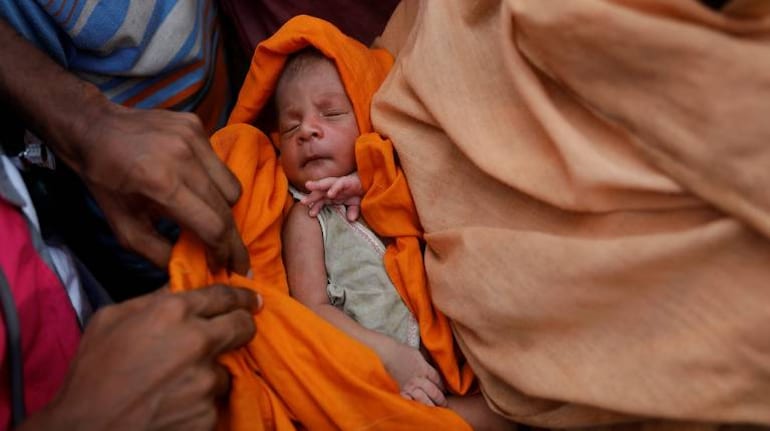



Siddhesh Raut
Moneycontrol News
For a Urogynecologist like Aparna Hegde, her medical training would have made her no stranger to death.
But when she was carrying out her residency at the Sion Hospital in Mumbai, she witnessed systemic problems that caused for mothers and their children to die, which left her feeling wracked with guilt.
“I have seen multiple cases where I’ve had women dying, and it’s my handwriting that is on the paper,” she said.
Hedge knew that the main reason why mothers and their children die was a lack of access to preventive healthcare information — A gap that Hegde knew she could have bridged with more counselling from her side.
But a perpetually busy clinic left her little time to counsel these women on preventive healthcare practices. “And they (the women) saw no reason to come back. They only do if they are in labour or the child is malnourished,” she said.
But instead of wallowing in her guilt for long, she decided to do something about it.
“I had a lot of ideas over which how they can be impacted. So instead of waiting for somebody else to do it, I built ARMMAN,” she said.
Hegde recalled that the driving force behind founding ARMMAN in 2008 was another observation — The rapid spread of mobile phones.
“Around the time I began my residency, mobile phones had just come to India. And I realized that within a couple of years, everyone had a mobile phone in their hands,” she said.
Hedge believed early on that that if she wanted to impact maternal and child healthcare, ARMMAN had to scale up with its outreach.
“And I realized that with leveraging technology, we could find a cost-effective, scalable solution to the lack of preventive care information.”
This was the birth of mMitra, a free voice call and SMS service that gives out preventive healthcare information to the mother during pregnancy and the early infancy stage. The service provides 145 voice calls over the entire period. It includes calls twice a week during the pregnancy stage, once a day in the seven days after birth, twice a week till the child’s third month, and once a week till the child reaches one year of age.
These calls can be availed by the mothers at their choice of time and their preferred language. A study carried out by the British government in 250 villages in rural Maharashtra, showed that 67.8 percent of the children under the mMitra service tripled their birth weight under infancy. This was in comparison to the 50.6 percent of the infants in a control group who were not subjected to care under the mMitra service.
Since ARMMAN’s first program took off in Sion Hospital in 2013, their services have reached out to almost 2 million women and children. Assisting in these efforts are 8000 health workers from community- based NGOs.
“We formed community NGO partners who work with people from the slums of Mumbai and Delhi. We also have women health workers who are incentivized to work,” said Hegde.
But ARMMAN continues to have its eyes on the scaling horizon.
The outreach and the effectiveness of the program even drew attention from the government. The Ministry of Health and Family Welfare sought after ARMMAN to manage their Kilkari program, a preventive healthcare information dissemination program similar to mMitra, which is currently running in 13 states. With this collaboration, ARMMAN hopes to scale mMitra's outreach to 7 million women and children.
“We also have focused programmes where we handhold HIV positive women till the child is 18 months of age to prevent the vertical transmission of HIV to them,” she said.
ARMMAN also has another pilot program that seeks to handhold the children who have severe acute malnutrition.
“We have a dedicated person calling the mother over a period of eight months, and handholding her through the care process so that she doesn’t relapse from a moderate malnutrition to a severe malnutrition,” said Hegde
ARMMAN is also working with the government to chart out a protocol that could be used to train midwives and health workers to detect and manage the onset of high-risk factors as early as possible.
ARMMAN is an acronym for Advancing Reduction in Mortality and Morbidity of Mother, Children and Neonates. With a woman dying in childbirth every ten minutes; 13.5 percent of children dying before age five; 35.7 percent being underweight, and 38 percent stunted, the organisation has taken an ambitious, but crucial mandate to India's development goals.

Discover the latest Business News, Sensex, and Nifty updates. Obtain Personal Finance insights, tax queries, and expert opinions on Moneycontrol or download the Moneycontrol App to stay updated!
Find the best of Al News in one place, specially curated for you every weekend.
Stay on top of the latest tech trends and biggest startup news.